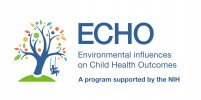Living Near Green Space Associated With Fewer Emotional Problems in Preschool-Age Kids, NIH Study Finds
Environmental influences on Child Health Outcomes NIHChildren who live in areas with natural spaces (e.g., forests, parks, backyards) from birth may experience fewer emotional issues between the ages of 2 and 5, according to a study funded by the NIH Environmental Influences on Child Health Outcomes (ECHO) program.








